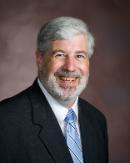UHV professor publishes book on American religion
Mark Ward Sr., a University of Houston-Victoria professor of communication, recently published “Inside Evangelicalism: The Culture of Conservative White Christianity.”
The book brings together Ward’s two decades of research on the culture of American evangelicals, a community of faith with which one in four U.S. adults identifies and is the nation’s single largest religious tradition.
“With the prominence of the Religious Right and with surveys documenting a rise in Christian nationalist sympathies, people are asking what’s going on,” Ward said. “So, the time was right for me to share what I’ve learned about the cultural roots of these trends.”
While historians, sociologists, journalists and religious scholars have published studies, Ward brings the perspective of an ethnographer – and uniquely, one who himself has identified as an evangelical for nearly 50 years.
“Inside Evangelicalism” is grounded in two research methods. The primary method is the ethnography of communication. In a series of field projects, each lasting between two and four years, Ward has observed how evangelicals talk to each other in conversations, small groups, sermons and mass media.
“When members of any group talk among themselves, they use a distinctive speech code,” said Ward. “Their talk is patterned around shared assumptions about people, relationships and symbols. As an ethnographer of communication, I interpret the culture of evangelicals by interpreting the assumptions behind their speech code.”
In his book, Ward describes how American evangelicals’ communication and culture are patterned around shared assumptions about the Bible, conversion, gender, preaching, leadership, knowledge, history and worldviews.
The second research method in Ward’s book is autoethnography.
“If ethnography is observing a group to research its culture, autoethnography is observing yourself to research a culture through your experiences as a member of that culture,” said Ward. “As both a professional scholar and a professing evangelical, the intersections of my two cultures bring unique insights.”
In successive chapters of “Inside Evangelicalism,” Ward relates his internal struggles to reconcile academic and evangelical understandings of the Bible, conversion, gender, the basis of knowledge and other topics.
“These personal experiences say a lot about evangelical culture – things that wouldn’t come just from observing others,” Ward said. “In my case, autoethnography was cathartic. In a year of writing, I worked through my two identities as a scholar and a believer, integrating learning and faith in ways that deepened and enriched both.”
Released by Lexington Books, “Inside Evangelicalism” has won advance praise from scholars. Janie Harden Fritz, executive director of the Religious Communication Association, called the book “a fascinating insider’s perspective of an under-researched and often misunderstood faith community. Academically rigorous and rich with vivid detail, this autoethnographic study offers key insights for scholars, teachers and students.”
Ward’s research has received national recognition, including his selection in November as the Religious Communication Association’s 2024 Scholar of the Year. The association also named his book “God Talk: The Problem of Divine-Human Communication” as its 2024 Edited Volume of the Year.
In November, the Spiritual Communication Division of the National Communication Association named Ward the recipient of its 2024 Outstanding Community Activism, Engagement, and Service Award. The honor cited Ward’s work in the Victoria community to promote civic and interfaith dialogue.
“My ultimate hope for ‘Inside Evangelicalism’ is to promote dialogue across the culture-war divide,” said Ward. “Such a dialogue would amount to intercultural communication – and effective intercultural communication starts with recognizing your own cultural assumptions and understanding the other person’s culture on its own terms.”
The University of Houston-Victoria, located in the heart of the Coastal Bend region since 1973 in Victoria, Texas, offers courses leading to more than 50 academic programs in the schools of Arts & Sciences; Business Administration; and Education, Health Professions & Human Development. UHV provides face-to-face classes at its Victoria campus, as well as an instructional site in Katy, Texas, and online classes that students can take from anywhere. UHV supports the American Association of State Colleges and Universities Opportunities for All initiative to increase awareness about state colleges and universities and the important role they have in providing a high-quality and accessible education to an increasingly diverse student population, as well as contributing to regional and state economic development.

